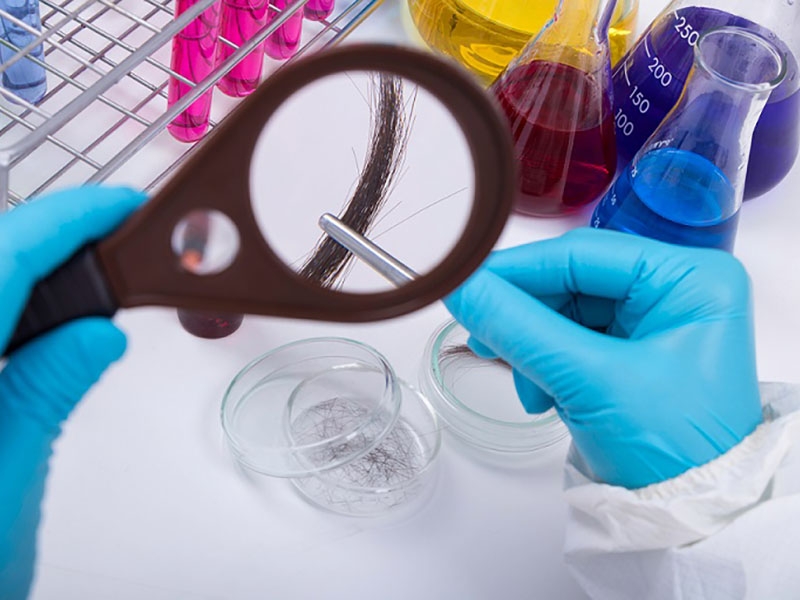
Toxicological Examination
A Toxicological Examination, also known as a toxicology test or drug test, is a procedure used to detect the presence of drugs, chemicals, or toxins in the body. This test is often used in various fields, including healthcare, employment, legal investigations, and rehabilitation programs, to determine whether someone has been exposed to harmful substances or has used specific drugs.
Toxicological examinations are vital for identifying drug or alcohol use, accidental poisoning, or exposure to toxic substances. The procedure typically involves collecting a sample of blood, urine, hair, or saliva, which is then analyzed in a lab to detect traces of drugs or chemicals. Toxicology tests are highly accurate and provide essential information for diagnosing poisoning, managing drug use, or fulfilling legal and workplace requirements.
Types of Toxicological Examinations
Urine Toxicology Test
The urine toxicology test is one of the most commonly used methods for drug screening, especially in workplace testing, rehabilitation centers, and legal settings. This test detects substances that the body has processed and excreted through the urine, making it an effective way to identify drug use over the past few days to weeks, depending on the substance. Urine tests can detect a wide range of drugs, including marijuana, cocaine, opioids, amphetamines, and benzodiazepines.
During the test, the individual provides a urine sample, which is then sent to a laboratory for analysis. Urine drug testing is non-invasive, quick, and relatively inexpensive, making it a popular choice for both pre-employment screenings and random drug testing in workplaces. In some cases, confirmatory testing (using methods like gas chromatography-mass spectrometry) may be performed if the initial test results are positive, ensuring accuracy and reducing the chances of false positives.
Hair Follicle Toxicology Test
The hair follicle test is another type of toxicological examination that can detect drug use over a longer period, typically up to 90 days. This test analyzes a small sample of hair, usually taken from the scalp, to detect drug metabolites that have been absorbed into the hair shaft. Hair follicle tests are highly reliable for detecting long-term or chronic drug use and are often used in situations where extended drug history needs to be established, such as in legal investigations or for high-security jobs.
One of the key advantages of the hair follicle test is its long detection window. Unlike urine tests, which only detect recent drug use, the hair follicle test can reveal patterns of use that occurred months prior. However, it is less effective for identifying very recent drug consumption (within the last 5 to 7 days), as it takes time for drugs to appear in the hair. Despite this, it remains a valuable tool for assessing drug use over an extended period.
Advantages of the Toxicological Examination
There are several advantages to toxicological examinations:
- Non-invasive: Many toxicological tests, such as urine and hair tests, are non-invasive and simple to perform, making them accessible and easy for individuals to complete.
- Accuracy and reliability: Toxicology tests are highly accurate when performed in a controlled laboratory environment, providing reliable results that can be used for medical, legal, or employment purposes.
- Comprehensive screening: These tests can detect a wide range of substances, including both illicit drugs and prescription medications, allowing for thorough evaluation of potential substance use or exposure to toxins.
Most toxicological tests are quick, with urine tests taking just a few minutes to complete. Results are typically available within 24 to 48 hours, though some tests may take longer if confirmatory testing is required.
Frequently Asked Questions (FAQ)
1. How long do toxicology test results take?
For most standard toxicological tests, results are available within 1 to 3 business days. More complex tests, such as those requiring confirmatory analysis, may take longer.
2. Can I refuse a toxicology test?
In many cases, refusing a toxicology test may have legal or employment consequences, especially if the test is mandated by law or required as part of a job application or ongoing employment.
3. What substances can a toxicology test detect?
Toxicology tests can detect a wide range of substances, including illegal drugs (e.g., marijuana, cocaine, methamphetamine), prescription medications (e.g., opioids, benzodiazepines), and alcohol.
Toxicological Examination Services at Clinic Consultation
At Clinic Consultation, we offer comprehensive toxicological examination services to meet your medical, legal, and occupational needs. Whether you're seeking a drug test for employment, legal purposes, or personal health reasons, our experienced team provides accurate and confidential testing in a professional environment.
Book an appointment today to schedule your toxicological examination at Clinic Consultation.
Click the button below to schedule your appointment online.